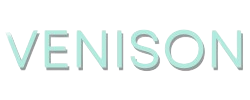Becoming a librarian is a rewarding career path that involves a blend of education, skills development, and practical experience. Librarians play a crucial role in managing collections of books and other resources, assisting patrons in finding information, and supporting educational and community programs. This guide will walk you through the steps to become a librarian, including educational requirements, skills needed, and practical steps for entering the profession.
Understanding the Role of a Librarian
Before embarking on a career as a librarian, it’s important to understand the diverse responsibilities and roles that librarians play.
1. Core Responsibilities
Librarians are responsible for various tasks, including:
- Collection Management: Acquiring, cataloging, and maintaining library resources.
- Patron Assistance: Helping library users find information and resources.
- Educational Programs: Designing and leading educational and community programs.
- Technology Integration: Utilizing digital tools and resources to enhance library services.
2. Specializations
Librarians can specialize in different areas, such as:
- Public Libraries: Serving general community needs and programs.
- Academic Libraries: Supporting educational institutions and research.
- Special Libraries: Focusing on specific subjects, such as medical, law, or corporate libraries.
Educational Requirements
To become a librarian, certain educational qualifications are generally required.
1. Bachelor’s Degree
Start with a bachelor’s degree in any field, though degrees in library science, information science, education, or related fields may be beneficial.
- Relevant Fields: Consider degrees in English, history, or social sciences for a strong foundation.
2. Master’s Degree in Library and Information Science (MLIS)
A Master’s degree in Library and Information Science (MLIS) or a related field is typically required for most librarian positions.
- Accreditation: Ensure the program is accredited by the American Library Association (ALA) or equivalent bodies in your country.
- Core Courses: Look for programs that offer courses in cataloging, reference services, information technology, and management.
3. Additional Certifications (Optional)
Depending on your location and specialization, additional certifications might be required or beneficial.
- Certifications: Explore certifications such as Certified Public Librarian (CPL) or specific certifications for specialized fields.
Developing Necessary Skills
In addition to formal education, developing key skills is crucial for a successful career as a librarian.
1. Communication Skills
Effective communication is essential for interacting with library patrons, colleagues, and other stakeholders.
- Verbal Communication: Assist patrons in understanding and locating resources.
- Written Communication: Prepare reports, newsletters, and other written materials.
2. Organizational Skills
Librarians must be highly organized to manage collections, handle administrative tasks, and plan programs.
- Cataloging: Maintain accurate and accessible catalog records.
- Project Management: Organize and manage library events and initiatives.
3. Technological Proficiency
Familiarity with various technologies and digital tools is increasingly important.
- Library Management Systems: Use integrated library systems (ILS) for cataloging and circulation.
- Digital Resources: Manage e-books, databases, and other digital resources.
4. Research Skills
Strong research skills are necessary for helping patrons find accurate and relevant information.
- Information Retrieval: Efficiently locate and evaluate resources.
- Analytical Skills: Assess and address the information needs of users.
Gaining Experience
Practical experience is essential for building a career in librarianship.
1. Internships and Volunteering
Gain hands-on experience through internships or volunteer work at libraries.
- Internships: Look for opportunities during your MLIS program or after completing your degree.
- Volunteering: Offer your services to local libraries or community organizations to build experience.
**2. Part-Time or Entry-Level Positions
Consider applying for part-time or entry-level positions to gain relevant experience.
- Positions: Look for roles such as library assistant, clerical worker, or technical services assistant.
- Responsibilities: Handle tasks like shelving books, assisting with check-outs, or managing circulation.
**3. Networking
Build professional connections through library associations, conferences, and workshops.
- Professional Associations: Join organizations like the American Library Association (ALA) or the International Federation of Library Associations (IFLA).
- Conferences: Attend industry events to meet professionals and learn about trends and opportunities.
Finding Employment
After gaining the necessary education, skills, and experience, you can start looking for librarian positions.
**1. Job Search
Search for librarian job openings through various channels.
- Job Boards: Use library-specific job boards or general employment websites.
- Library Websites: Check the career sections of library websites for job postings.
2. Applying for Positions
Prepare a strong application package.
- Resume: Highlight your education, experience, and relevant skills.
- Cover Letter: Tailor your cover letter to each position, emphasizing your qualifications and passion for librarianship.
3. Interview Preparation
Prepare for interviews by understanding common questions and practicing your responses.
- Typical Questions: Be ready to discuss your experience, skills, and how you handle various scenarios in a library setting.
- Scenario-Based Questions: Prepare for questions that explore your problem-solving abilities and approach to patron assistance.
Continuing Education and Professional Development
To stay current and advance in your career, engage in ongoing education and professional development.
1. Workshops and Seminars
Attend workshops and seminars to keep up with industry trends and technology.
- Topics: Look for sessions on emerging technologies, management practices, or specialized areas of librarianship.
2. Certifications and Advanced Degrees
Consider pursuing additional certifications or advanced degrees for career advancement.
- Specializations: Explore certifications in areas like digital libraries, archival studies, or information management.
3. Professional Journals and Publications
Read industry journals and publications to stay informed about new research, best practices, and innovations in librarianship.
- Journals: Subscribe to journals like “Library Journal” or “College & Research Libraries.”
Conclusion
Becoming a librarian involves a combination of formal education, skill development, practical experience, and ongoing professional growth. By following the steps outlined above, you can navigate your path to becoming a successful librarian, whether you aim to work in public, academic, or special libraries. Embrace the journey with dedication and passion for the field, and you’ll find a rewarding career supporting knowledge, education, and community engagement.






